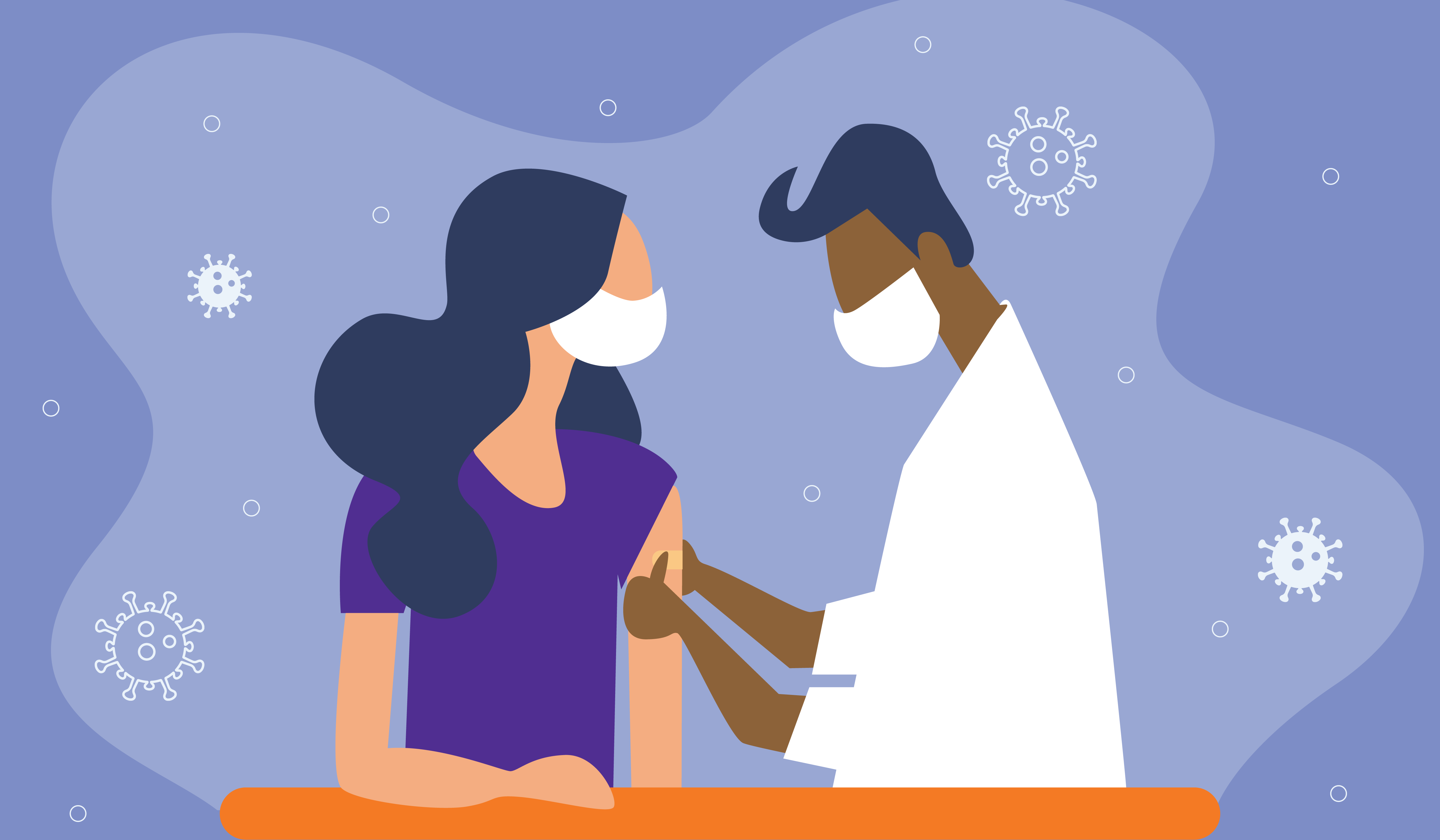
What is a Booster Shot?
Why should I get a booster shot?
Besides getting boosted immunity to the virus, if you stay up to date on your COVID-19 vaccines–you do not need to quarantine. This is a huge perk if you are a busy college student.
What are Bivalent Boosters?
Bivalent boosters are updated boosters that protect against both the original virus that caused COVID-19 and the Omicron variants BA.4 & BA.5. Previous boosters are called monovalent because they were designed to protect against the original virus.
Two COVID-19 vaccine manufacturers, Pfizer and Moderna, have developed bivalent (updated) COVID-19 boosters. For those who have gotten more than one original (monovalent) booster are also recommended to get an updated (bivalent) booster.
When Can I Get My Booster?
Guidance below is based on the 18+ age range. For more information on age groups 17 and younger, please check out the CDC COVID-19 vaccine page.
Pfizer
At least 2 months after completing your initial (primary) COVID-19 vaccine series OR after last booster.
*mRNA bivalent boosters are recommended in most situations.
Moderna
At least 2 months after completing your initial (primary) COVID-19 vaccine series OR after last booster.
*mRNA bivalent boosters are recommended in most situations.
Johnson & Johnson
At least 2 months after receiving your J&J vaccine.
*A J&J monovalent booster shot is available in limited situations. Contact Ask-A-Nurse if you have questions.
Novavax
At least 2 months after receiving your initial (primary) vaccine series.
*A Novavax monovalent booster shot is available in limited situations. Contact Ask-A-Nurse if you have questions.
Side Effects
The side effects of a booster vaccine are the same as getting your primary vaccine doses. The most common side effects of booster shots are pain at the injection site and fatigue.
Experiencing side effects means the vaccine is doing its job by building up your immune system response. Side effects can affect your ability to do daily activities but should go away in a few days.
Common side effects include:
- Pain, swelling, or redness around the injection site
- Fever
- Fatigue
- Headache
- Chills
- Muscle pain
- Nausea
Frequently Asked Questions
Where can I get my COVID-19 vaccine?
COVID-19 vaccines are offered nearly everywhere from your local grocery store to your favorite pharmacy.
COVID-19 vaccines and bivalent boosters are available on-campus at Health & Wellness Services, call 507.457.5160 for an appointment. Please bring your student ID and insurance information with you. Don’t forget to self-report your vaccine!
If you are looking to receive a particular vaccine, you may need to call around to local clinics to see what vaccine types they have on hand.
Can I mix & match my COVID-19 vaccines?
An individual who receives a second or third dose different than their initial vaccine, will be “mixing and matching” their vaccine series. CDC now allows for eligible individuals to choose which vaccine they would like to receive as a booster. You should not mix and match your initial, or primary, series.
In most situations, mRNA vaccines are preferred for booster shots. However, if you had a severe reaction from an mRNA vaccine Johnson & Johnson may be recommended. Contact Ask-A-Nurse for more information.
What if I recently had COVID-19 or have been exposed to COVID-19?
To rule out COVID-19 symptoms vs. vaccine side effects, it would be best to wait until you have completed your isolation or quarantine period. For more questions reach out to Ask-A-Nurse.
What should I expect during my COVID-19 vaccine?
For some, it may have been a while since you last received a dose of the COVID-19 vaccine. Check out our Wellness Blog to help refresh your memory on what to do before, what happens during and after your COVID-19 vaccine.